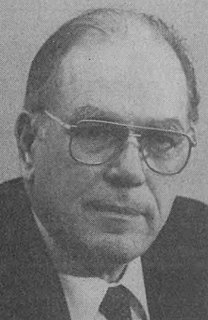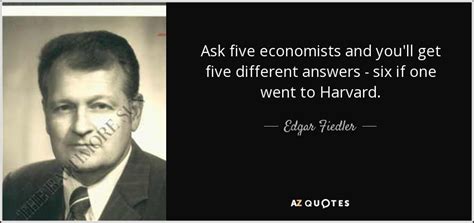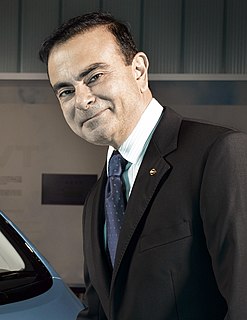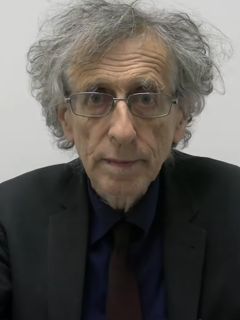A Quote by Lyndon LaRouche
I'm an economist, I do a lot of forecasting, and I'm probably one of the most successful forecasters in terms of very specific kinds of forecasts.
Quote Topics
Related Quotes
We've long felt that the only value of stock forecasters is to make fortune tellers look good. Even now, Charlie and I continue to believe that short-term market forecasts are poison and should be kept locked up in a safe place, away from children and also from grown-ups who behave in the market like children.
Experts kill me. Economic experts, that is. Corporations, foundations, publications and governments pay them by the bucketful, and they fill buckets with forecasts that change more frequently than white-collar, workers do shirts. What Lies Ahead is the usual title. What Lies would often be more appropriate. If women's hemlines changed as rapidly as an economist's forecasts, the fashion people and the textile industry would be more profitable than any other. In fact, if all the country's economists were laid end to end, they still wouldn't reach a conclusion.
Auto repair, piloting, skiing, perhaps even management: these are skills that yield to application, hard work, and native talent. But forecasting an uncertain future and deciding the best course of action in the face of that future are much less likely to do so. And much of what we've seen so far suggests that a large group of diverse individuals will come up with better and more robust forecasts and make more intelligent decisions than even the most skilled "decision maker."
Medicine has been successful by treating diseases in a very specific way once the damage is done. But telomere length integrates a lot of factors together and gives you an overall picture of risk for what is now emerging as a lot of diseases that tend to occur together, such as diabetes and heart disease.




































